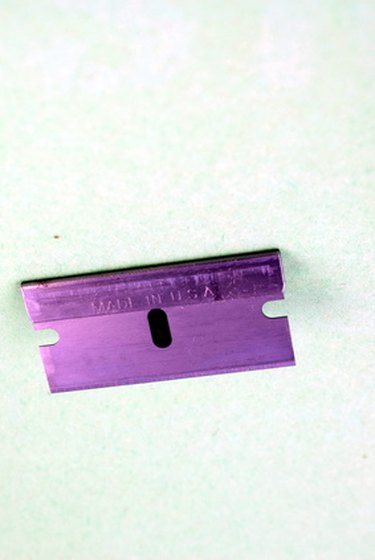Things You'll Need
Heat gun
Razor blade
Scouring pad
Mineral spirits
Rags
Powdered laundry detergent

Silicone, a heat-resistant oil or rubberlike polymer, is a versatile substance used in things like sealants and lubricants. Silicone sealants, like caulking, are meant to be permanent; silicone lubricant has a lot of staying power. These qualities make silicone a difficult thing to clean or remove. How to remove silicone effectively from a painted surface will differ depending on whether it is caulk or lubricant.
Caulk
Step 1
Heat up caulk with a heat gun set on low. A hair dryer can alternately be used.
Video of the Day
Step 2
Carefully cut a flap into the caulk using a razor blade.
Step 3
Try to peel off large chunks of caulk with your hands. Continue to use the razor blade to slice off the caulk, if needed. Be careful not to scratch the surface. Hold the razor blade at a sharp angle to keep it from being directed toward the painted surface.
Step 4
Clean off all residual bits of caulk with a scouring pad and mineral spirits. Wear rubber gloves to prevent skin contact with the mineral spirits.
Lubricant
Step 1
Soak a rag in mineral spirits. Wear rubber gloves to prevent skin contact with the mineral spirits.
Step 2
Sprinkle powdered laundry detergent on the rag and on the spill.
Step 3
Wipe up the spill. Keep folding the rag over to reveal a clean side and to keep from just spreading lubricant back onto the surface. Switch rags when necessary.
Step 4
Buff the area dry with a clean, dry rag.
Step 5
Repeat this process if any lubricant remains. Put a few drops of water on the area. If the water beads up, lubricant is still on the surface. If you are repainting, the lubricant needs to be completely cleaned or new paint will not adhere.
Video of the Day